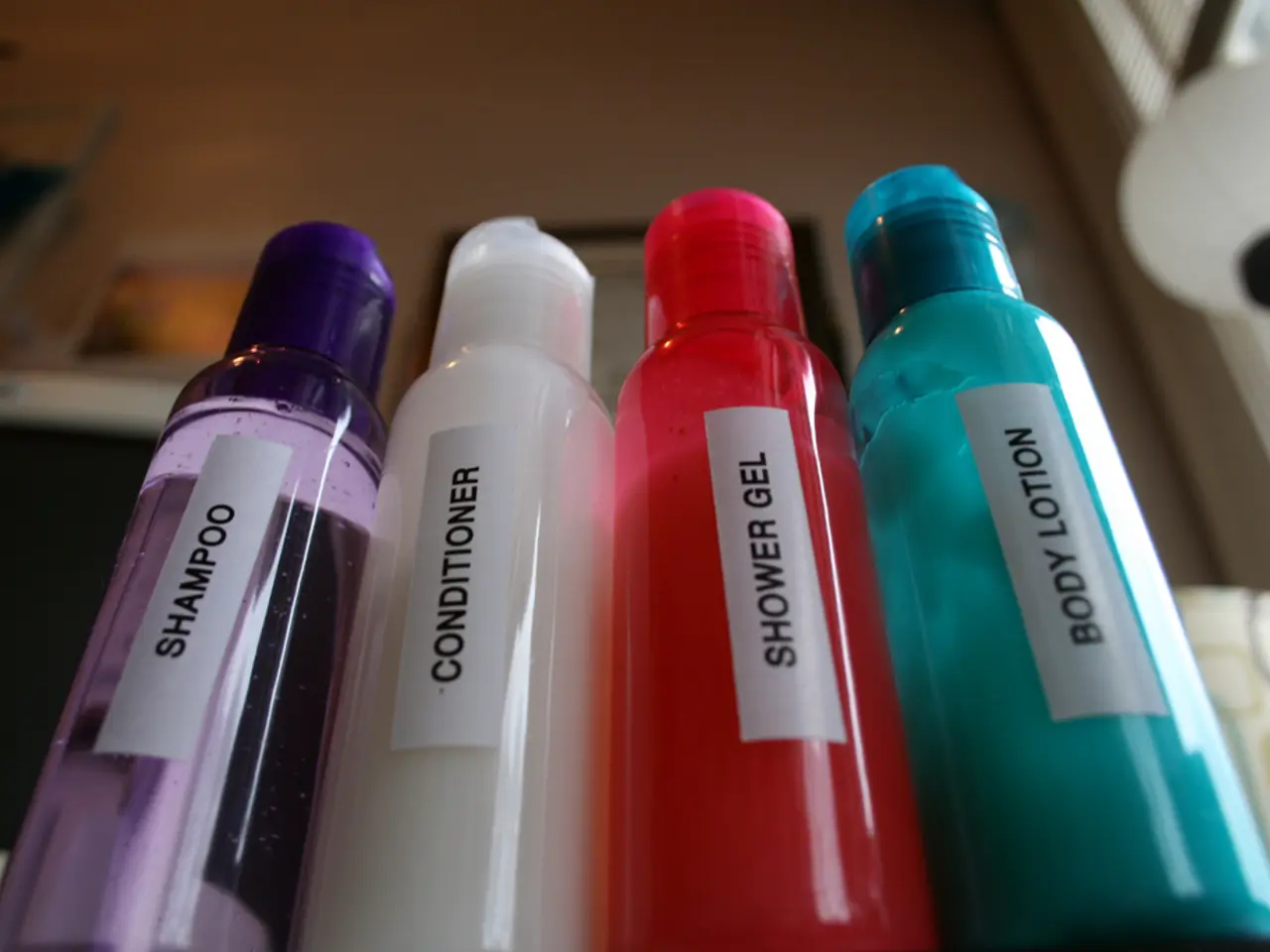Application or hydration: Which step comes first in skin care routine?
In the realm of skincare, understanding the correct order and choice of products can make a significant difference. Here's a comprehensive guide to help you navigate the world of serums, toners, moisturizers, and more.
The Core Principle
The fundamental principle is layering products in order of increasing thickness, starting with cleansing and toning, then applying treatment serums, hydrating/moisturizing products, and finishing with sunscreen in the daytime. This approach ensures that each product has ample opportunity to penetrate the skin.
The Daily Routine
In a basic morning routine, a gentle cleanser, moisturizer, and sunscreen might be included. In the evening, after removing makeup and cleansing, the order is cleanser, toner, treatment serums (like retinoids), moisturizer.
The Role of Serums
Serums, typically thinner and more concentrated than moisturizers, contain targeted ingredients addressing specific issues. For instance, vitamin C serums help with brightening, while hyaluronic acid serums focus on hydration.
Tailoring to Your Skin Type
Adjustments based on skin type include using lightweight, water-based serums and oil-free moisturizers for oily skin, hydrating serums with hyaluronic acid and thicker creams for dry skin, balancing products like gel-cream moisturizers and targeted serums for combination skin, and fragrance-free, soothing products with ingredients like aloe vera and peptides for sensitive skin.
Additional Tips
- Apply serums before moisturizers for better absorption.
- Introduce treatment serums like retinoids in the evening after toner and before moisturizer.
- Weekly masks can be used once or twice a week to boost results depending on skin needs.
- If using LED light therapy, perform it right after cleansing and before applying serums or moisturizers.
- Sunscreen should always be the last step in the daytime routine to ensure adequate protection.
Cautions and Considerations
- Dermatologists generally do not recommend using too many active ingredients at once.
- Some active ingredients in serums do not mix well with those in moisturizers, which can lead to interactions and side effects.
- People who are pregnant or nursing should not use these products.
- For anyone using retinoids, AHAs, or BHAs - even just periodically - it is important to wear sunscreen every day with an SPF of 30 or above.
- People who have rosacea, hormonal acne, or severe scarring should speak with a dermatologist before trying an over-the-counter product with retinoids.
- Exfoliants can increase sensitivity to the light, so a person may prefer to apply them before bed.
- It is important to research a product's active ingredients before making a choice. A dermatologist can describe the best approach based on a person's concerns and needs.
- The best order and time of day for a skin care routine depends on the products' ingredients and the person's goals.
In summary, with a little knowledge and the right products, you can create a skincare routine that suits your needs and helps you achieve healthier, more radiant skin.
- In skincare, the order and choice of products are crucial, as layering them in order of increasing thickness helps ensure each product penetrates the skin.
- For a basic morning skincare routine, a cleanser, moisturizer, and sunscreen are common inclusions, while in the evening, the order is usually cleanser, toner, treatment serums, moisturizer.
- Serums, thinner and more concentrated than moisturizers, contain targeted ingredients like vitamin C for brightening or hyaluronic acid for hydration.
- Tailoring products to your skin type is essential for optimal results, such as using lightweight, water-based serums for oily skin or hydrating serums for dry skin.
- To maximize absorption, apply serums before moisturizers and introduce treatment serums like retinoids in the evening after toner and before moisturizer.
- Weekly masks can boost results, but LED light therapy should be performed right after cleansing, before applying serums or moisturizers.
- Remember that dermatologists advise avoiding combining too many active ingredients, as some may clash and cause side effects.
- Always prioritize sunscreen as the last step in daytime routines, and people who are pregnant, nursing, or have sensitive skin should consult a dermatologist before using certain skincare or health-and-wellness products, like those with retinoids, AHAs, or BHAs.




